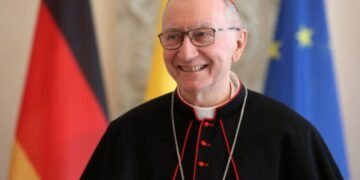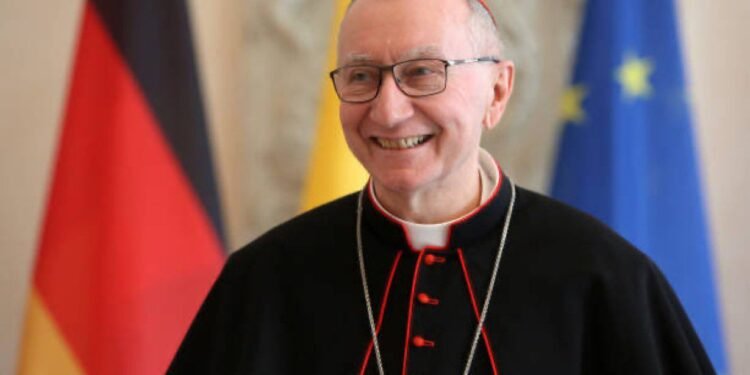By Charles Igwe
Following the collapse of the Istanbul summit on Ukraine, Vatican Secretary of State Cardinal Pietro Parolin reiterated the Holy See’s firm stance against war and its unshakable commitment to peace. He declared that despite the recent diplomatic setback, the Church will not relent in its pursuit of an end to the ongoing violence.
“The failure of the Istanbul summit cannot and must not mark the end of efforts to stop the war,” Cardinal Parolin asserted. “The Holy See, faithful to its mission of peace, renews its call to resist the logic of violence and the false realism that views war as inevitable.”
Quoting Pope Leo XIV, Parolin reaffirmed the Pope’s tireless dedication to global reconciliation: “For this peace to spread, I will devote every effort.” He added that the Vatican remains ready to facilitate direct dialogue between conflicting parties, emphasizing its role as a bridge for face-to-face negotiations where “hope may be restored and dignity returned — the dignity of peace.”
Addressing the meaning behind Pope Leo XIV’s repeated appeal for a “just and lasting” peace in Ukraine, Parolin stressed that genuine peace cannot emerge from coercion or fear. “True peace arises from deep, respectful, and serious dialogue,” he said. “It must safeguard the dignity of all involved, without humiliations or conditions that leave lasting wounds.”
He further insisted that any lasting resolution must be anchored in international law, justice, and freedom — not in precarious arrangements propped up by military force. “Peace cannot rest on fragile balances maintained by arms,” he warned.
The Cardinal also voiced deep concern over the surge in military spending across Europe, cautioning that this trend could undermine global stability. While acknowledging every nation’s right to self-defense, he asked: “To what extent does military buildup foster trust among nations and help build lasting peace?” Excessive armament, he said, risks fueling an arms race and heightening mutual suspicion, leading to “dramatic consequences for all.”
“The right to self-defense is not absolute,” he underscored. “It must be accompanied by the duty to address — and if possible, eliminate — the root causes of conflict.”
Turning to the dire humanitarian crisis in Gaza, Cardinal Parolin condemned the ongoing devastation and suffering of civilians. “It is unacceptable in 2025 to witness what is happening in Gaza,” he said, calling on Israeli authorities to lift the blockade preventing humanitarian aid from reaching those in need.
War, he insisted, “can never be a legitimate means of resolving problems.” Instead, the Vatican continues to back diplomatic solutions, pointing to recent ceasefires that facilitated the release of more than 140 hostages as proof that dialogue remains viable even in complex, entrenched conflicts.















































